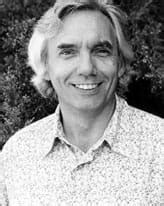A Quote by George Edward Woodberry
Our understanding of Shakespeare already depends largely on the vitality of Renaissance elements in our education. Each man must live in his own generation, as the saying is; but the generations are bound together by the golden links of the great tradition of civilization.
Related Quotes
We have not chosen this time. We cannot help it if we are born as men of the early winter of full Civilization, instead of on the golden summit of a ripe Culture, in a Phidias or a Mozart time. Everything depends on our seeing our own position, our destiny, clearly, on our realizing that though we may lie to ourselves about it, we cannot evade it. He who does not acknowledge this in his heart, ceases to be counted among the men of his generation, and remains either a simpleton, a charlatan, or a pedant.
With only one life to live we can't afford to live it only for itself. Somehow we must each for himself, find the way in which we can make our individual lives fit into the pattern of all the lives which surround it. We must establish our own relationships to the whole. And each must do it in his own way, using his own talents, relying on his own integrity and strength, climbing his own road to his own summit.
We can not communicate with the Lord if we do not communicate with each other. If we want to present ourselves to him, we must take a step towards meeting one another. To do this we must learn the great lesson of forgiveness: we must not let the gnawings of resentment work in our soul but must open our hearts to the magnanimity of listening to others, open our hearts to understanding them, eventually to accepting their apologies, to generously offering our own.
Does the open wound in another's breast soften the pain of the gaping wound in our own? Or does the blood which is welling from another man's side staunch that which is pouring from our own? Does the general anguish of our fellow creatures lessen our own private and particular anguish? No, no, each suffers on his own account, each struggles with his own grief, each sheds his own tears.
The great secret of morals is love; or a going out of our nature, and an identification of ourselves with the beautiful which exists in thought, action, or person, not our own. A man, to be greatly good, must imagine intensely and comprehensively; he must put himself in the place of another and of many others; the pains and pleasure of his species must become his own. The great instrument of moral good is the imagination.
I would say that there exists a thousand unbreakable links between each of us and everything else, and that our dignity and our chances are one. The farthest star and the mud at our feet are a family; and there is no decency or sense in honoring one thing, or a few things, and then closing the list. The pine tree, the leopard, the Platte River, and ourselves-we are at risk together, or we are on our way to a sustainable world together, we are each other's destiny.
The psychological impotence of our enraged generation must be traced to the overwhelming accusation of insincerity which every man and woman has to confront, in the depths of his own soul, when he seeks to love merely for his own pleasure.And yet the men of our time do not love with enough courage to risk even discomfort or inconvenience.


































